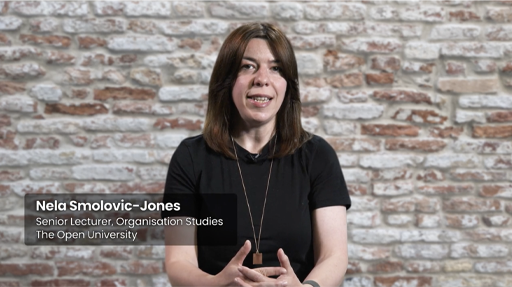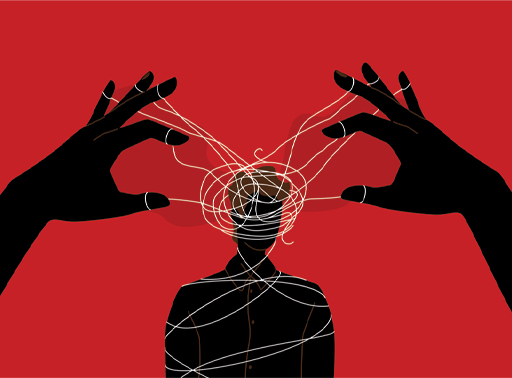3 Resistance under corrupt conditions
When considering resistance, it is important not to lose sight of the specific circumstances under which it takes place. Too often studies of resistance are dismissive of hidden, constructive or subtle forms because they do not offer substantial challenge to the dominant power. However, there are many circumstances under which resisting can hold such serious consequences that doing so in open ways can be severely limiting to career, wellbeing or even physical safety. Hence some important research has been conducted into how people manage to gain concessions under circumstances when the organisations and institutions they are working with, through and against are corrupt – i.e. they cannot be trusted to uphold the basic standards expected within a liberal democracy, such as a commitment to equality, freedom of expression and adherence to the rule of law.
When such standards are compromised – i.e. when organisations and institutions show favour to some groups of people, while acting in prejudiced ways towards others – then this can usually be characterised as corruption. The charity Transparency International, which researches and campaigns on corruption, defines it as ‘the abuse of entrusted power for private gain’ (Transparency International, 2023). In other words, corruption always involves two factors: first, an abuse of power; second, someone gaining from this abuse. You can note from the definition that it can cover basic corruption that enriches a person or small group of people financially – such as taking bribes in exchange for preferential treatment. Corruption can also work to enhance the private gain of some people in insidious ways, through protecting the dominance of some groups over others – such as men who abuse their partners, or racists who expose Black people to violence and hate.
Such corruption can of course overlap – corruption that enriches can also dominate – e.g. white traders who became rich through enslaving Black people. Corruption in general has broader political and social implications because it ‘erodes trust’ in public institutions and society in general, which also means that it ‘weakens democracy, hampers economic development and further exacerbates inequality, poverty, social division and the environmental crisis’ (Transparency International, 2023).
When corruption takes hold deeply in a society, resistance becomes challenging. If corruption is limited to just a few organisations, it is possible to expose them and gain justice through the usual channels of media, police or other organisations responsible for upholding public standards. When corruption is more deeply entrenched, it is still possible to resist, but doing so involves uncomfortable compromises and working through institutions you know are, at best, deeply flawed.
Smolović Jones (2023) studied a non-corrupt women’s rights organisation operating in a corrupt context. The organisation’s workers usually had to work through public organisations and institutions that were corrupt. Such corrupt organisations were occupied by people who tended to assume that the dominance of men over women was natural and who used their power to protect male abusers. Such a system, where it is assumed that men are superior to women, is known as a patriarchy. To protect the patriarchy, Smolović Jones found that corrupt organisations and individuals would adopt gaslighting, seeking to confuse and throw off kilter those practitioners trying to secure justice for victims of abuse. The practitioners were unable to rely on official channels and processes because corruption was too endemic for this to work. Instead, they had to adopt a subtler and undercover form of resistance. Smolović Jones calls this dispelling practice, meaning to clear away the fog created by corrupt gaslighting, reorienting efforts towards gaining justice. She identified four ways in which dispelling was achieved, as you will explore in the next activity.
Activity 4 Dispelling practice
Watch the following video, where OU academic Nela Smolović Jones talks about dispelling practices of resistance under conditions of corruption. As you watch, try to identify the four practices highlighted. In your own context, what would be the advantages and disadvantages of adopting such an approach? Make some notes of your thoughts.

Transcript: Video 3 Nela Smolović Jones – Resistance under conditions of corruption (dispelling gaslighting)
Comment
The four dispelling practices identified are as follows (Smolović Jones, 2023):
- Reiteration: practitioners seeking justice continuously repeat the same messages when the organisations they are dealing with try to change the subject and re-direct focus to peripheral issues.
- Presenting evidence: practitioners go into meetings prepared, with evidence systematically collected and organised.
- Tactical withdrawal: sometimes practitioners need to concede some issues to gain justice overall for the people they are representing.
- Instigating compassion: corruption is a complex and contradictory phenomenon, and many people working within such organisations can be ethically upstanding in some ways but not in others. Finding points of empathy and understanding appears important in dispelling practice.
The obvious advantage of working in this way is that practitioners are able to resist patriarchy and discrimination, gaining some degree of justice for the people they represent. This was important for the people Dr Smolović Jones researched because they had no choice but to continuously work through people in corrupt organisations. However, this is clearly a restrictive approach as the bigger system is still one of corruption and discrimination. In your own contexts, it may well be that on occasion you will need to adopt some of these tactics of dispelling, but you should never lose sight of opportunities for resistance that promises more systemic change. Ultimately dispelling is about professional, capable and ethical people resisting as much as they can under the circumstances.

